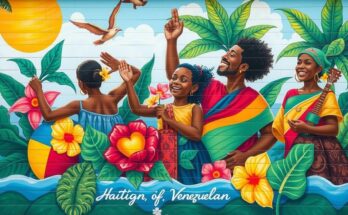Tanzania’s ACT-Wazalendo opposition party leaders were denied entry into Angola, prompting their swift deportation back to Tanzania. While most members returned on the same Ethiopian Airlines flight, a few spent the night under uncertain circumstances. The incident has raised concerns over the suppression of opposition movements in Africa, particularly in light of the upcoming Platform for African Democracy (PAD) conference.
Recently, leaders from Tanzania’s opposition party ACT-Wazalendo detailed their experience at Luanda International Airport, where Angolan officials denied them entry and effectively deported them back to Tanzania on the same Ethiopian Airlines flight. Most of the delegation, including party leader Dorothy Semu, returned just two and a half hours later, while a few, including Zanzibar’s First Vice President Othman Masoud Othman and Chadema Chairman Tundu Lissu, were forced to spend the night in Luanda as authorities arranged their return.
The opposition leaders were traveling to Benguela to attend the Platform for African Democracy (PAD) conference when they were barred from entry. Noteworthy individuals included in the travel group but denied access were Mozambican politician Venâncio Mondlane and former Botswana President Ian Khama, among others from various African nations.
A letter directed to Angola’s Director of Migration and Foreign Services named several individuals prohibited from entry, highlighting prominent politicians such as Ugandan opposition leader Robert Ssentamu Kyagulanyi, also known as Bobi Wine. Tanzanian officials, however, were not mentioned on this list.
In a statement dated March 14, 2025, Mr. Othman criticized the actions taken against the delegation, appealing to the African and global communities to honor the principles of unity established by the continent’s early leaders. Despite his frustration, he expressed goodwill towards the Angolan people, emphasizing the historical ties between the two nations. Mr. Othman subsequently decided to forgo the Africa Democracy Forum and return home, stating that the incident required serious contemplation on the setbacks facing African diplomacy and democracy.
Ms. Semu described the ordeal, asserting that the Angolan government sought to thwart the PAD conference, which aimed to bolster opposition movements across Africa, particularly affecting Angola’s local political party, Unita. She explained that following their success in the 2022 elections, the government was increasingly concerned about Unita’s growing influence, prompting them to suppress dissent harshly.
Moreover, Ms. Semu highlighted the failure of airport officials to provide a legitimate rationale for the denial of entry, implying that they were acting on orders from higher authorities. Interestingly, Ms. Semu’s passport was not marked with an entry ban, as citizens from Southern African Development Community (SADC) member countries do not require a visa to enter Angola.
She pointed out the widespread challenges faced by opposition parties across Africa and stressed the importance of a united front in advocating for necessary political reforms benefiting the citizenry. “This incident has given us new resolve to continue our efforts, despite the challenges, in the fight for democracy,” Ms. Semu noted, reporting that members of the diplomatic corps were also impacted.
Lt. Gen. Mathew Mkingule, Tanzania’s High Commissioner to Zambia, indicated that some of the barred leaders were ultimately permitted entry late on March 13, with accommodations provided by the Angolan government. He prepared transport for First Vice President Othman Masoud Othman, although he clarified his lack of insight into the underlying reasons for the incident.
The incident involving Tanzania’s opposition leaders at Luanda International Airport underscores significant challenges facing political dissent in Africa. The denied entry and subsequent deportation drew attention to the suppression of opposition movements and highlighted the tumultuous nature of African diplomacy. As individuals within the delegation express determination to continue their advocacy for democracy, the actions taken by Angolan authorities reveal the complexities of maintaining political stability amidst evolving opposition dynamics. This situation calls for reflection and action on the importance of democratic dialogue and cooperation among African nations.
Original Source: www.thecitizen.co.tz




